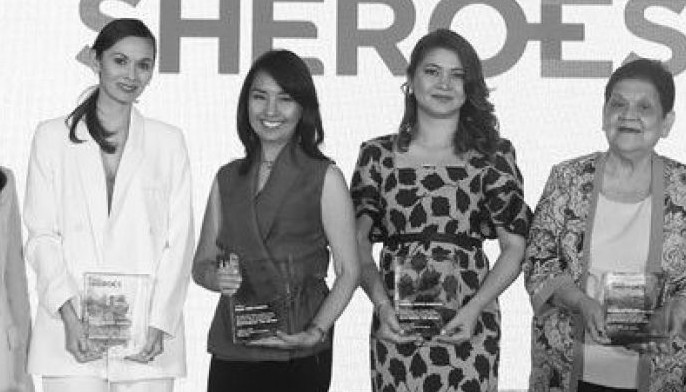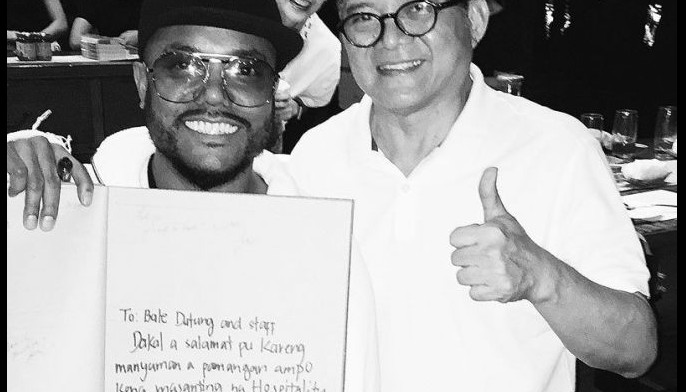Filipino film wins Democracy Video Challenge
MANILA, Philippines – The US Embassy in Manila announced Tuesday that the Philippines’ entry won the US State Department-sponsored Democracy Video Challenge.
The State Department and its partners said Melissa “Aissa” Peñafiel and Miguel Ocampo, both from the University of the Philippines-Diliman, were among the six winners of the worldwide online competition that engages people around the world in a global dialogue on democracy.
The Challenge asked young video makers to complete the phrase, “Democracy is…” through three-minute videos posted on the competition’s YouTube site. More than 900 people from 95 countries answered the challenge.
“Long Live the Fearless Man” is narrated in Filipino, with English subtitles, featuring black-and-white scenes and close-up shots of a man’s body (Alastaire “Alas” Tabilos). Written in indelible ink on his skin are words like “Demokrasya” and “Dalamhati” (despair).
“The body parts and the texts on the body… we wanted to do that to emphasize how you, as a person, as a citizen, cannot change who you are. It will show how you feel about your government, your country. It will show (that) no one, (not even those) who will (try to) take that away from you, they cannot erase that,” Peñafiel explained in an interview on ABS-CBN’s Mornings @ ANC.
The two filmmakers said that their short film expresses their “radical and liberal” definition of democracy – one that looks at and assesses its good and bad sides, its positives and negatives.
US Ambassador Kristie Kenney enthused, “This is a wonderful achievement for Aissa Peñafiel and Miguel Ocampo. Their three-minute video, entitled ‘Long Live the Fearless Man,’ shows the real power of Filipinos increasingly in the film and creative arts industry.”
An independent jury co-chaired by Hernando de Soto (president of the Institute for Liberty and Democracy) and Michael Apted (president of the Directors Guild of America) selected the 18 finalists, and the online voting public chose the six winners, one from each region of the world.
Other winners were Chansa Tembo from Zambia; Lukasz Szozda from Poland; Tsering Choden from Nepal; Rodin Hamidi from the United Arab Emirates; and Anna Israel from Brazil.
“Any one of these videos is pretty good, but if you look at a bunch of them together you get a real snapshot of what democracy means around the world,” said Jonathan Margolis, assistant secretary of the State Department’s bureau of international information programs.
“What comes through loud and clear is that the best videos are the ones that stop and make you think about what democracy is instead of telling you what it is.”
“Our winners have taken up their cameras to jumpstart a global conversation about the meaning of democracy,” said jury co-chair Apted. “Their unique voices, revealed through the art of video, bypass borders and speak to us all about the freedoms that truly matter.”
“The State Department and our partners created the Democracy Video Challenge as an experiment to generate a global conversation,” said Judith McHale, US undersecretary for public diplomacy and public affairs.
“We were impressed by the thoughtfulness and quality of responses to the contest, and we will support and continue to engage in support of the ongoing dialogue among people from around the world on this important topic,” she added.
The winners will receive an all-expense-paid trip to New York, Washington, and Los Angeles in September, where they will meet with democracy groups, film and television companies, the media, and government organizations. Screenings of their films are planned in all three cities. The videos can be seen online at youtube.com/democracychallenge.
- Latest
























